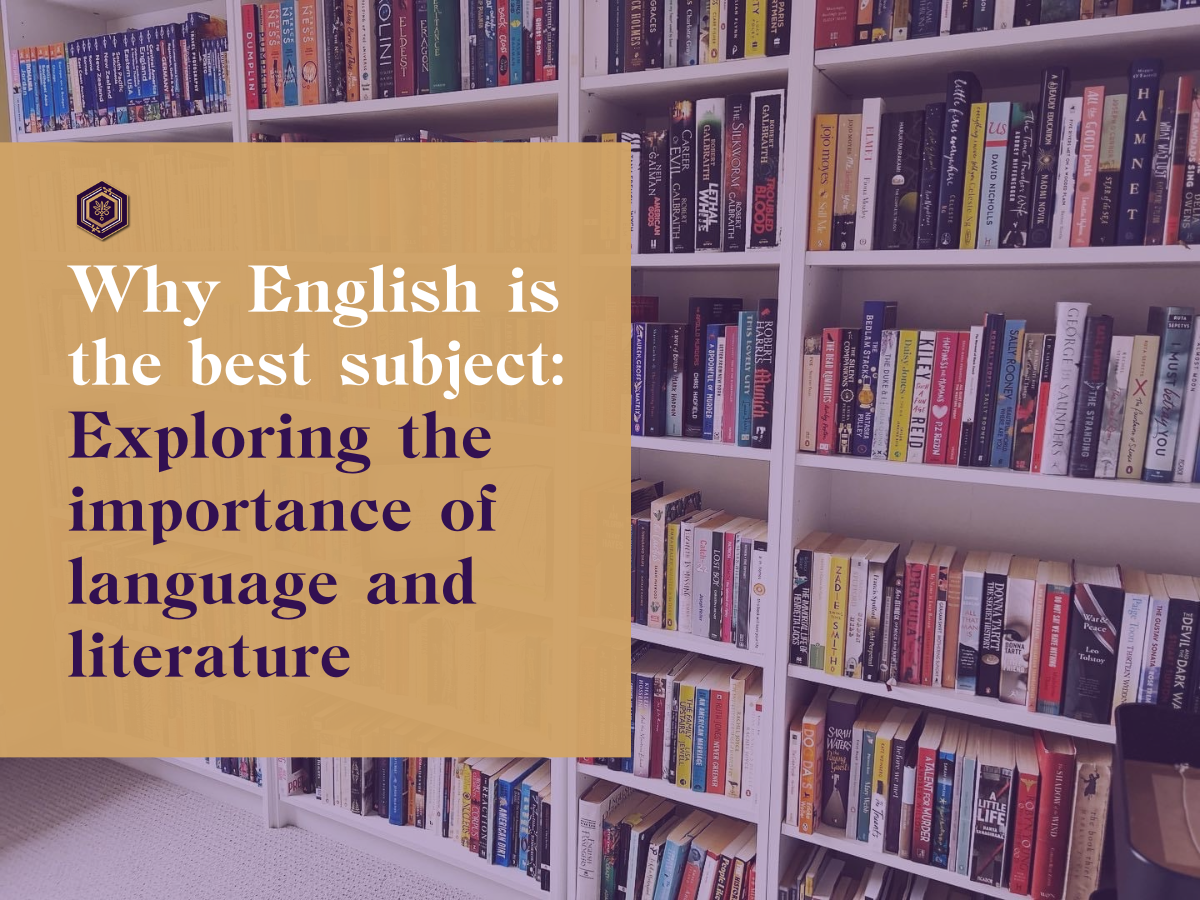From the age of 7, when I created a library in my bedroom (complete with colour-coded organisation and handwritten book cards) I used to make my little sister choose books, read them and then write a book review on each of them. It was part library, part mini dictatorship! Reading has been my one true...
Why English is the Best Subject: Exploring the Importance of Language and Literature

From the age of 7, when I created a library in my bedroom (complete with colour-coded organisation and handwritten book cards) I used to make my little sister choose books, read them and then write a book review on each of them. It was part library, part mini dictatorship!
Reading has been my one true passion throughout my life. From as long as I can remember, I’ve read. I’ve never ‘outgrown’ children’s books. There’s something so magical and captivating about children’s books and they have so much to teach us. I think that’s also been one of my strengths as a teacher. I could recommend books that I knew my students would enjoy, but they also saw me reading and my enthusiasm for all things story related.
So, which children’s books have stayed with me from childhood ? I would have to say the following:
- Charlotte’s Web by E.B. White: A story about a pig named Wilbur who is saved from being slaughtered by an incredible spider named Charlotte. Charlotte and Wilbur become unlikely friends, and Charlotte uses her web to write messages about Wilbur so that people will see how special he is. I always cried at the ending.
- The Secret Garden by Frances Hodgson Burnett: A story about a young girl named Mary who moves to a big house in the countryside after her parents die. She discovers a secret garden that has been locked up for years, and with the help of a new friend, she brings the garden back to life. A timeless classic that I often use to support 11+ students with challenging vocabulary.
- The Hobbit by J.R.R. Tolkien: A story about a hobbit named Bilbo Baggins who goes on a thrilling adventure with a group of dwarves to reclaim their treasure from a dragon. Along the way, they face many challenges, including trolls, goblins, and a mysterious creature named Gollum.
- Black Beauty by Anna Sewell: A story about a horse who tells his own story. He goes through many different owners, some of whom are kind and others who are cruel. Throughout his life, he experiences both good and bad, but he never loses his spirit. Another story that used to make me cry!
- The Borrowers by Mary Norton: The Borrowers are tiny people who live in the homes of humans and borrow things they need to survive. The story follows a young Borrower named Arrietty who befriends a human boy named Tom. Together, they face many adventures and dangers as they try to keep the Borrowers’ existence a secret. I discovered this book when I was about 9 and I read it over and over again.
As well as reading stories, I also love to write them. This has definitely helped me in my career as an English teacher. After completing a writing for children course, I wrote a 45,000 word middle-grade adventure story and I would tell my students how it was going. Usually, slowly and somewhat painfully. They often couldn’t believe that I had to go back and edit it time and time again, but when they understood why I did it, it really helped them to see why re-drafting and reading their work out loud, helped them to become better writers. And whilst I haven’t managed to get to publication (yet), it was important for my students to see I wouldn’t give up. And why would I? I write because I love it, so even if the only people who read my stories are my long-suffering sister and my teenage children, that’s fine.
What I’m trying to say in a very long-winded way (once an English teacher, always an English teacher) is that I love everything to do with English. I love reading, I love writing and I’m always so proud of my students when they see themselves as authors. Or when they’ve realised that poetry can be beautiful. Or even that they have read a whole book for the first time and they actually derived pleasure from it. My students know I’m invested in them and their progress and it shows. And it’s the same is true for everyone on my tutoring team.
So, what makes English such a great subject to study?
- Historical significance: English literature provides a glimpse into the history and culture of the English-speaking world. Many literary works are set in specific historical periods and reflect the values, beliefs, and social norms of their time.
- Critical thinking skills: Studying literature requires critical thinking skills, including analysis, interpretation, and evaluation. These skills are essential in many areas of life, including academia, business, and personal relationships.
- Language proficiency: English literature can help students improve their language proficiency. Reading and analysing literary works can enhance students’ vocabulary, grammar, and writing skills.
- Cultural awareness: English literature exposes students to diverse cultures, perspectives, and experiences. This exposure can help foster cultural awareness and empathy, which are crucial in a globalized world.
- Personal growth: English literature can inspire personal growth and self-reflection. Many literary works explore universal themes such as love, loss, and identity, which can resonate with readers on a personal level and facilitate personal growth and development.
